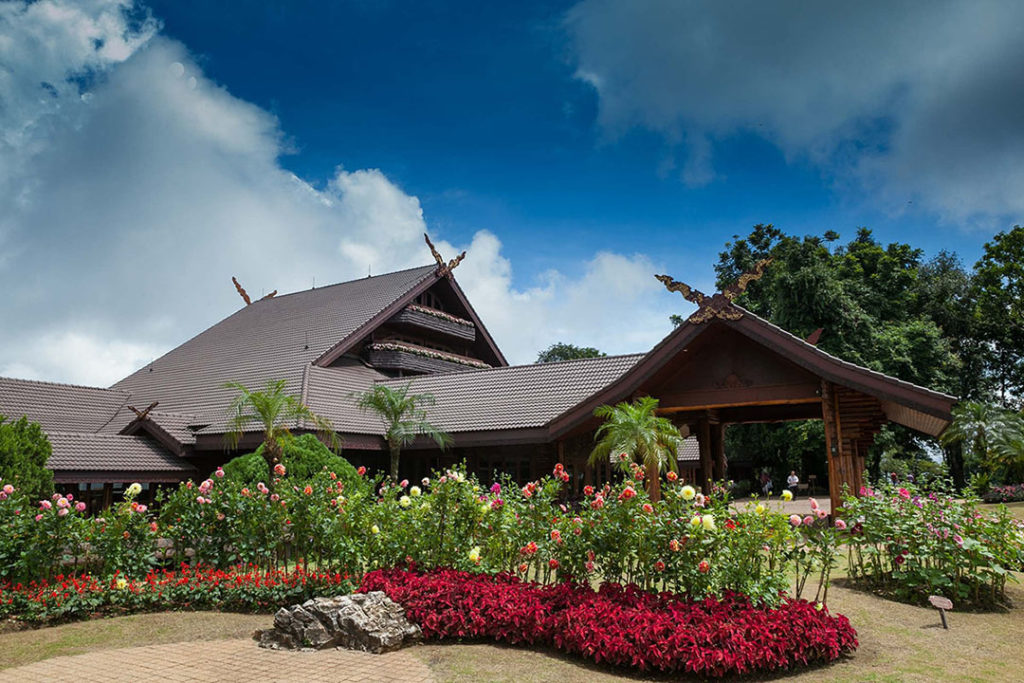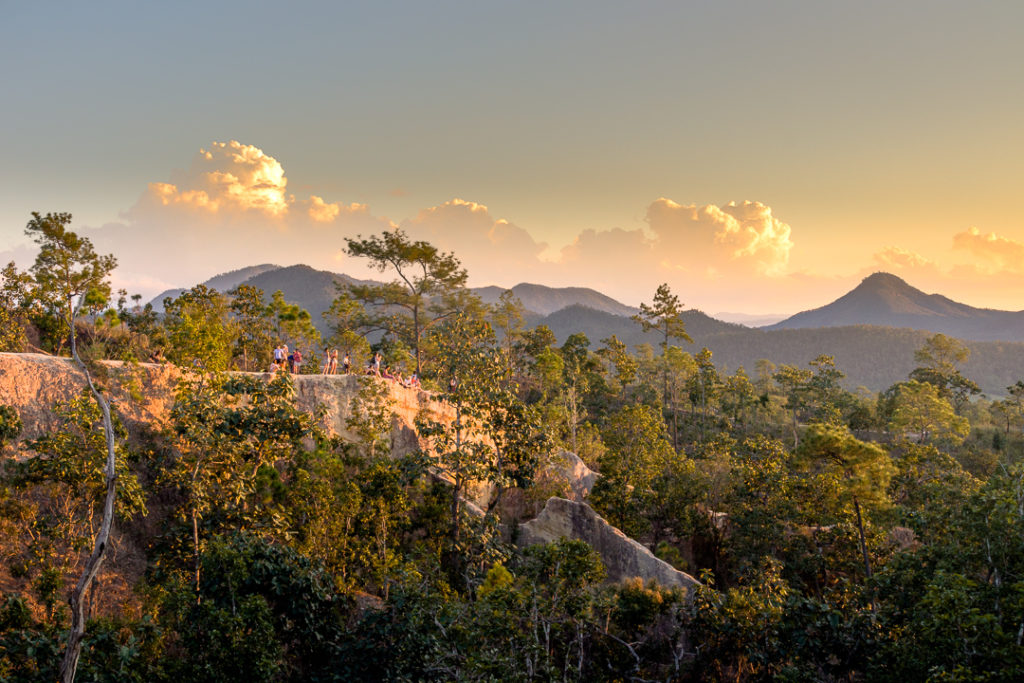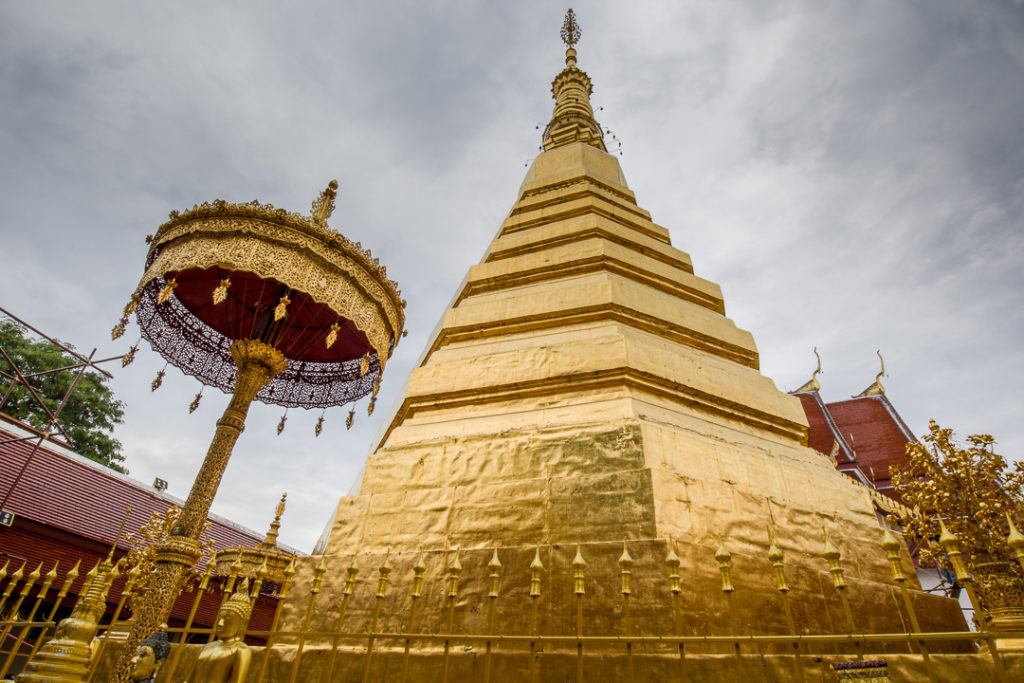Northern Thailand offers much in the way of culture, ethnic diversity, nature-based activities and rich history. Its largest city Chiang Mai has long been one of the country’s most popular tourist destinations, and there is a choice of surrounding provinces that make for great add-on visits.
Bordering Myanmar and Lao PDR. to the west, north and east, the region comprises 17 provinces. Along with Chiang Mai, these are Chiang Rai, Mae Hong Son, Sukhothai, Phitsanulok, Nakhon Sawan, Lamphun, Lampang, Phetchabun, Nan, Tak, Uttaradit, Phichit, Phrae, Kamphaeng Phet, Uthai Thani and Phayao.
In line with the ‘Amazing Thailand Go Local’ campaign launched in 2018 by the Tourism Authority of Thailand (TAT), these provinces are being promoted as secondary and emerging destinations that can be paired together with the primary destination of Chiang Mai.
The ‘Amazing Thailand Go Local’ campaign is at the forefront of a government policy to better spread the flow of tourists and the distribution of tourism revenue among urban and rural areas, while at the same time to also even out the peak seasonality factor.
These secondary destinations are to have their tourism economies and cultural assets developed and marketed in an environmentally-friendly way and with a mind to sustainability.
Here is a quick look at four of the secondary provinces to add-on to a visit to Chiang Mai:
Chiang Rai
The northernmost province in Thailand, Chiang Rai is blessed with a dramatic landscape of mountains, rivers and forests, an ethnic diversity in its people including the various hilltribes and a strong Lanna identity that can be seen in its architecture, art, language, music and cuisine.

The Doi Tung Royal Villa, which was home to Princess Mother Srinagarindra, and the Mae Fah Luang Garden are set in the mountainous highlands. The Villa is now a museum in honour of the Princess Mother and how she dedicated herself to improving the local people’s livelihood.

Chiang Saen, on the banks of the mighty Mekong River, was a main city of the ancient Lanna Kingdom and chedis, Buddha images, earthen ramparts and pillars can still be seen today. The city is also famed for its views of the Golden Triangle, where the borders of Thailand, Lao PDR. and Myanmar meet.
Mae Hong Son
The mountainous and largely forested province of Mae Hong Son offers scenic natural beauty and outdoor activities, the fascinating culture of its ethnically diverse people and a captivating rural charm.

The popular Mae Hong Son Loop touring route can be done by rented car or motorbike. A journey of some 600 km that starts and finishes in Chiang Mai, this takes in places like Mae Chaem on Thailand’s highest mountain Doi Inthanon, the riverside town of Mae Sariang and the town of Pai with its chilled-out new-age, backpacker scene and activities like rafting, tubing, trekking and cycling.

Lamphun
Founded in the 7th century by Queen Chamathewi, Lamphun is one of Thailand’s oldest cities and boasts an impressive history. It was the capital of the Hariphunchai Kingdom and the northernmost city of the Mon Kingdom of the Dvaravati period.

Lamphun town is just a 30-40 minute drive from Chiang Mai city. In terms of national parks, the province has three – Mae Takhrai National Park, Mae Ping National Park and Doi Khun Tan National Park, which is home to Thailand’s longest railway tunnel.

Lamphun province is a major producer of the small round fruit longan (Lamyai in Thai) and around August it stages an annual longan festival.
Lampang
Steeped in Northern Thailand’s history and culture, Lampang was for some years home to the revered Emerald Buddha that is now in the Grand Palace in Bangkok. It is a city of unique sites including what is probably one of Thailand’s oldest wooden structures, and what many consider Northern Thailand’s most impressive temple. It’s also one of very few cities in the kingdom where tourists can visit sites on horse carts.

A unique way to visit the sites in town is on an open-air horse-drawn carriage unique to Lampang. Walking through the old city is also a favourite for energetic tourists. Stops can include the 100-plus-year-old teak City Pillar Shrine and at the buildings and grounds of Ban Sao Nak.
Lampang is also home to the Thai Elephant Conservation Centre, which aims to conserve Thai elephants and promote ecotourism. This includes caring for sick and injured pachyderms. Visitors can watch elephant demonstrations, elephant river bathing and feeding. Exhibits are a good introduction to the history and cultural significance of the Thai elephant.

Phrae
Phrae traces its history back to the Hariphunchai Kingdom of the Mon and was once one of Thailand’s largest centres of the teak trade. In the old town area of the provincial seat are historic buildings and locations that are testimony to these former glory days, while the province still boasts among the country’s largest teak forest reserves.

The village of Ban Thung Hong is renowned for its products made from Mo Ham, a local indigo-dyed cotton fabric. While traditionally the fabric was used for farmers’ pants and tunics, the village also offers lovely handmade clothing.
An intriguing natural attraction is Phae Mueang Phi Forest Park, where 2 million years of erosion has created curious red sandstone rock formations.

Nan
Nan prides itself on nature, and in 2018, received commendation from His Majesty King Maha Vajiralongkorn Bodindradebayavarangkun as the No. 1 ASEAN Clean Tourist City. The recognition followed Nan being awarded the No .1 ASEAN Clean Tourist City Standard 2018-2020 at the ASEAN Tourism Forum 2018 earlier in that year.

Lying 700 kilometres north of Bangkok, much of the province is wilderness, and the remainder is rural focusing on rice and fruit cultivation. There are also cultural and historical sights worth visiting.
Nan town is quaint and the capital of the province of the same name. It has little more than 20,000 people making it a rather small provincial capital. It is an old city, though, dating back to the 14th century when the first known community settled on the banks of the Nan River.

For foreign and Thai travellers alike who are keen to explore more of Northern Thailand, inter-provincial bus services, self-drive car hire and flights allow for the linking of one or more of the secondary destinations with Chiang Mai. Chiang Mai International Airport and Mae Fah Luang Chiang Rai International Airport are among the six international gateway airports in Thailand, and are served by domestic and regional flights.






